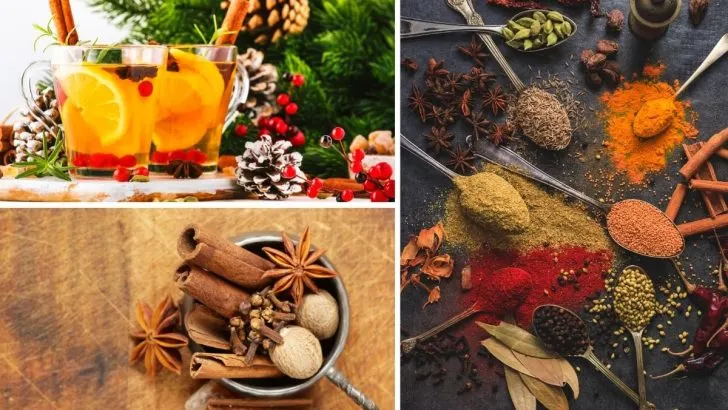Winter is the time when our kitchens become a haven for rich aromas and hearty flavors. As the temperatures drop, the demand for warm, comforting dishes rises, making it the perfect season to experiment with spices and herbs.
These natural flavor enhancers not only elevate the taste of your meals but also bring a touch of warmth and nostalgia to your culinary creations. In this blog post, we will explore seven seasonal herbs and spices that can turn your winter dishes into a feast for the senses, ensuring every meal is an unforgettable experience.
Cinnamon
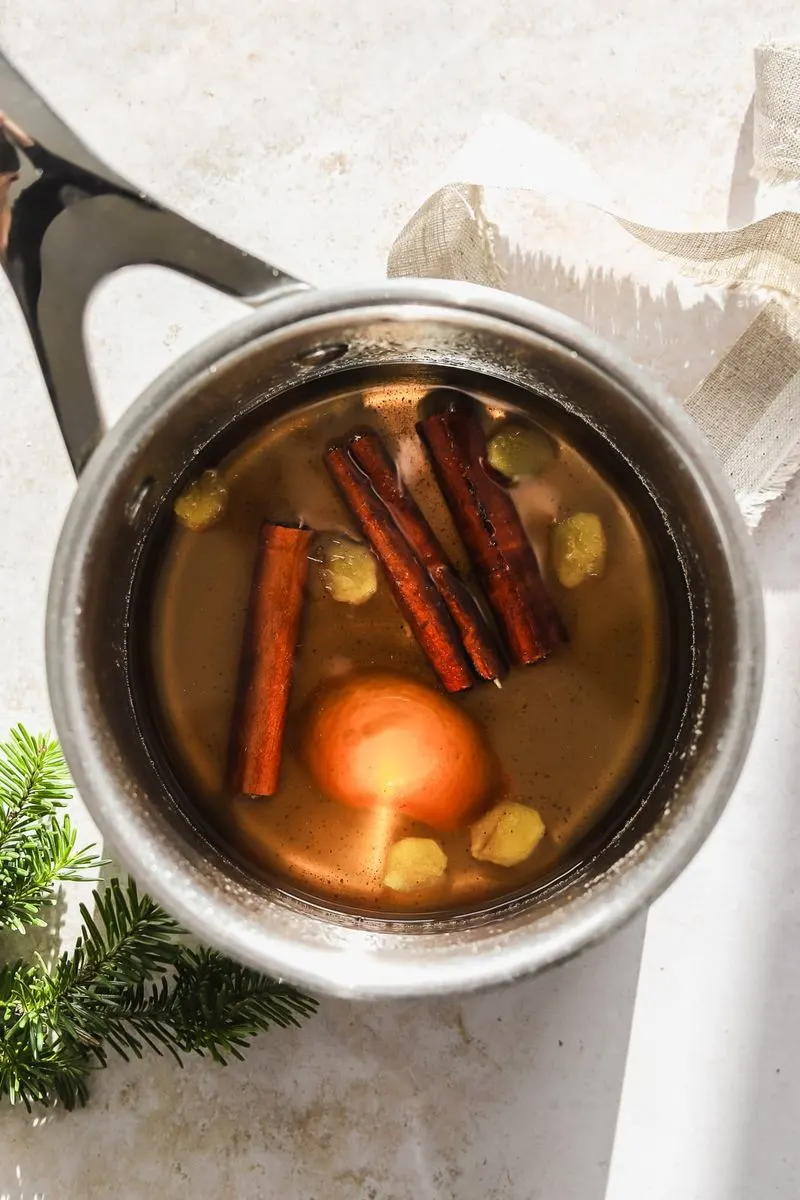
Cinnamon is the quintessential winter spice, adored for its sweet and woody aroma. It’s a staple in festive dishes, from spiced drinks to baked goods.
Adding cinnamon to your oatmeal or sprinkling it on roasted vegetables can transform ordinary dishes into delightful treats. This versatile spice also pairs well with savory dishes, such as Moroccan lamb or curry.
Its warm, comforting scent makes it a popular choice for winter. Not only does it enhance flavors, but it also evokes a sense of nostalgia, reminding us of holidays and family gatherings.
Nutmeg
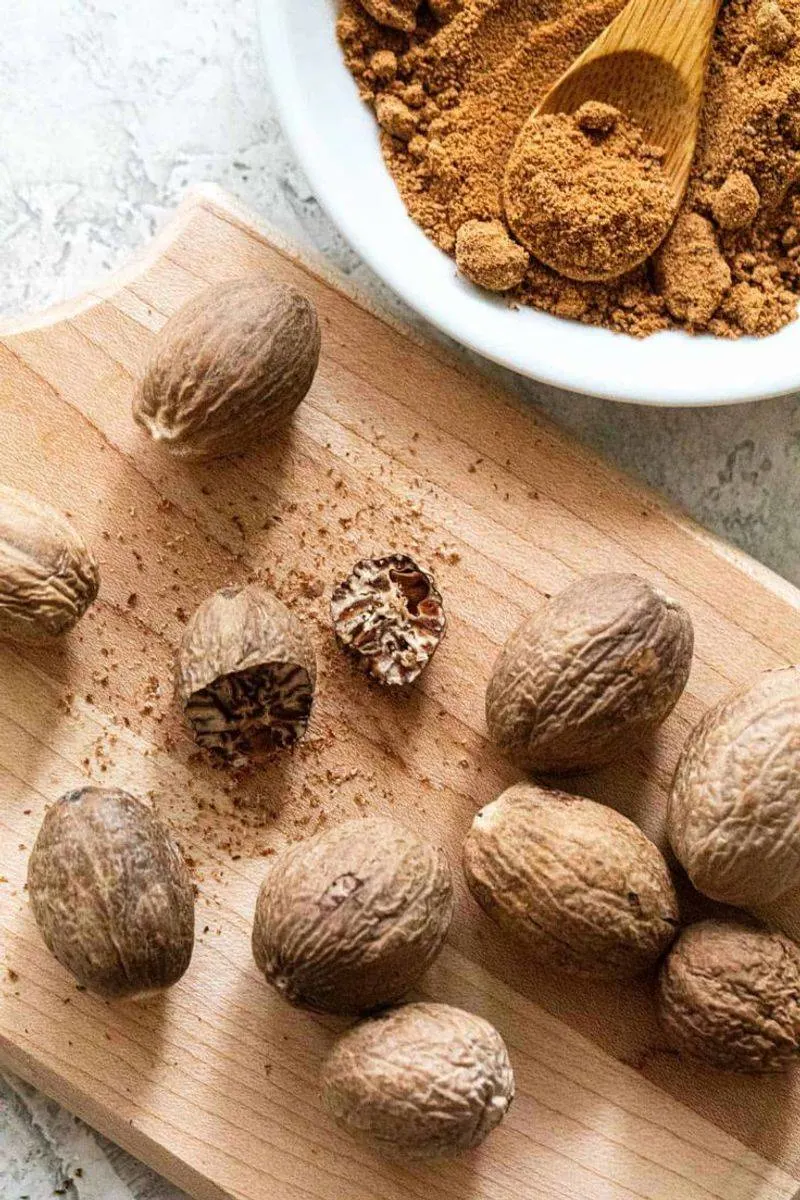
Nutmeg is a warming spice that brings a hint of sweetness and nuttiness to winter dishes. Its subtle flavor is perfect for creamy soups, mashed potatoes, and spiced desserts.
Nutmeg can also be used to add depth to beverages like eggnog or mulled wine. A pinch of grated nutmeg can elevate your béchamel sauce or pumpkin pie, turning them into culinary masterpieces.
Its ability to blend seamlessly with other spices makes it a must-have in your winter spice collection. Embrace its unique flavor profile to create comforting and inviting meals.
Rosemary
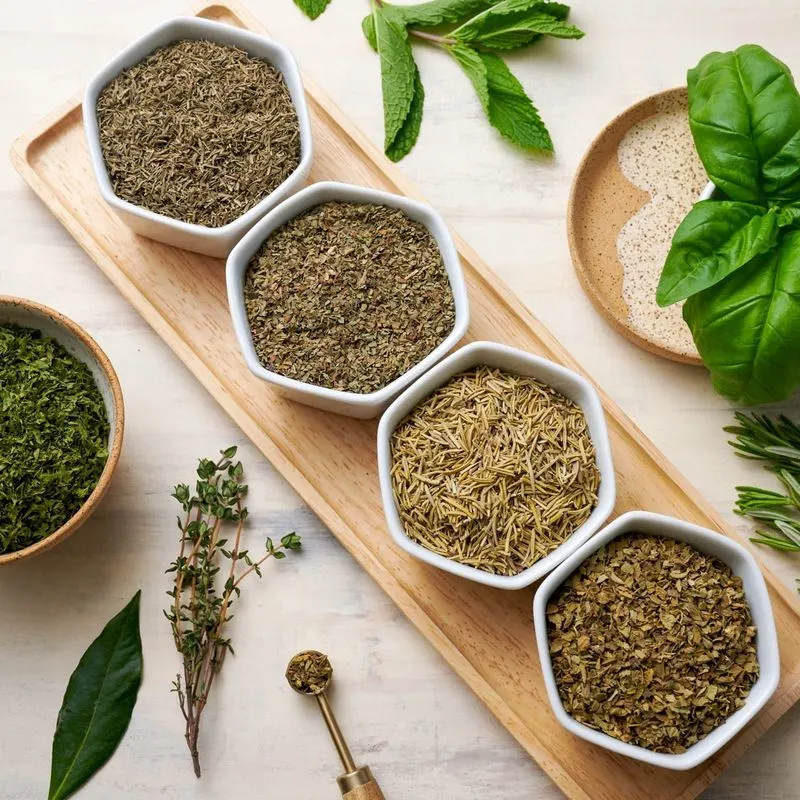
Rosemary is an aromatic herb that infuses dishes with a piney, earthy flavor. It’s perfect for seasoning roasts, potatoes, and winter vegetables.
The herb’s robust nature holds up well in slow-cooked dishes, imparting a depth of flavor that delights the palate. Rosemary can be used to create flavorful marinades for meats or enhance the taste of bread and stuffing.
Its evergreen aroma adds a festive touch to meals, making it a favorite during the winter season. Experiment with rosemary to add a burst of flavor to your dishes.
Sage
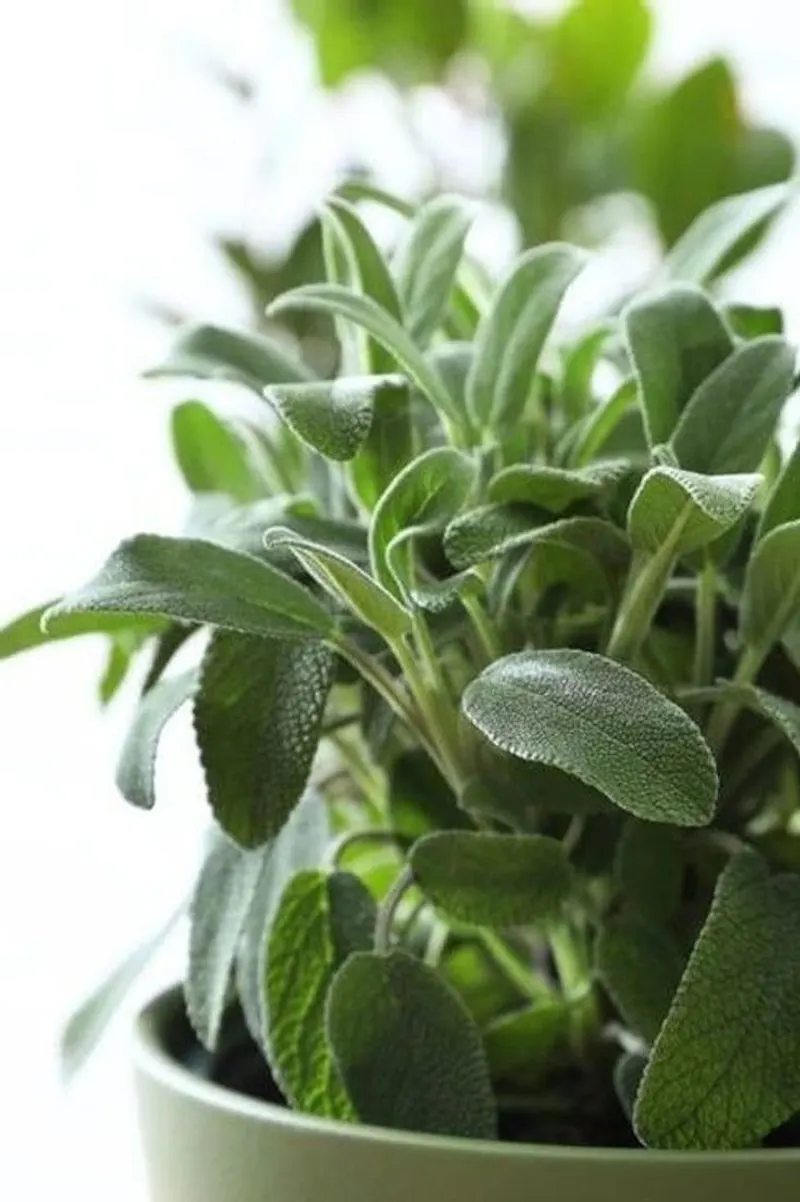
Sage is a must-have herb in winter cooking, known for its earthy and slightly peppery flavor. It’s commonly used in stuffing, sausages, and savory bakes.
Sage pairs beautifully with poultry and pork, adding a subtle richness to dishes. Frying sage leaves in butter creates a delicious topping for pasta or gnocchi.
This herb is also perfect for flavoring soups and stews. Its distinctive taste enhances the complexity of winter dishes, making it an essential addition to any cook’s pantry.
Use sage to bring warmth and depth to your meals.
Cloves
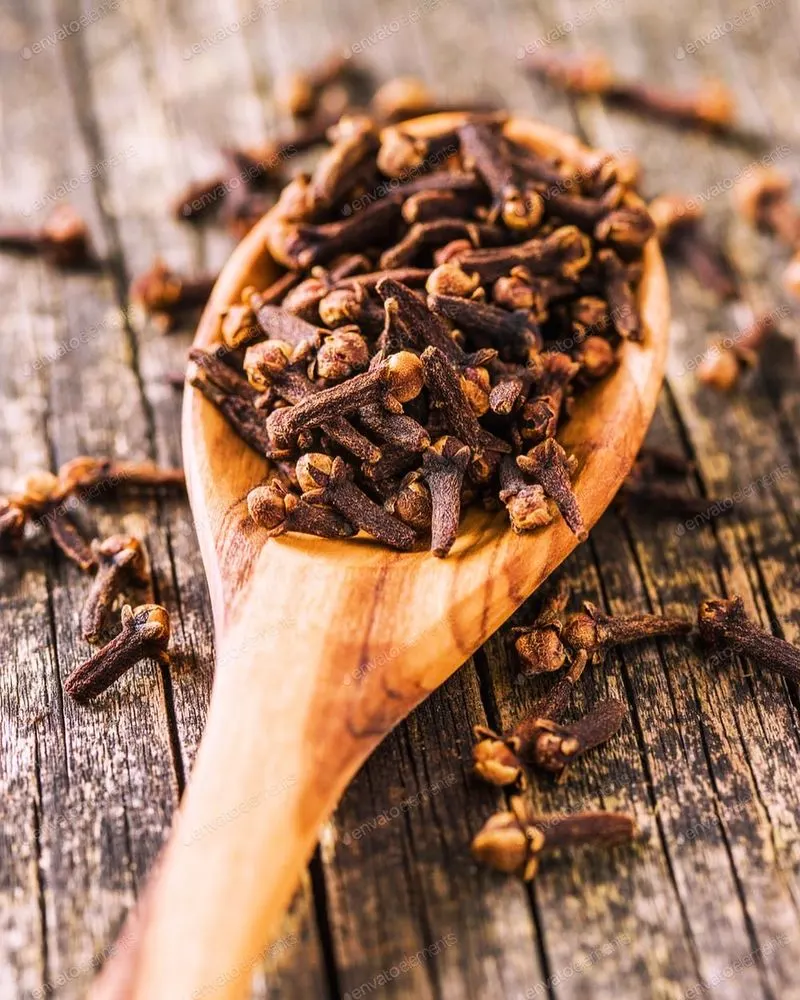
Cloves are a potent spice known for their strong, sweet aroma and flavor. They are often used in baking and creating warm beverages like cider and chai.
Whole cloves can be studded into meats for a fragrant roast or added to stocks for an aromatic base. Their distinct taste immediately transports you to winter festivities, making them a cherished spice for the season.
Cloves can elevate both sweet and savory dishes, providing a burst of flavor that lingers on the palate. Incorporate cloves to add a festive touch to your winter recipes.
Thyme
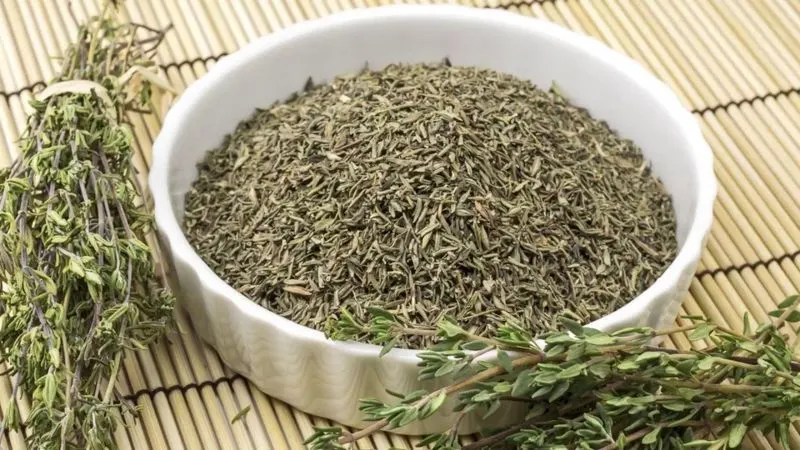
Thyme is a versatile herb that adds a subtle, herbaceous note to winter dishes. It’s ideal for seasoning meats, soups, and roasted vegetables.
Thyme’s mild flavor complements hearty stews and casseroles, enhancing their depth. This herb also pairs well with other spices, making it a staple in seasoning blends.
Fresh thyme can be used to infuse oils or vinegars, adding a gourmet touch to your dishes. Its aromatic quality brings warmth to meals, making it a beloved herb for winter cooking.
Explore thyme’s versatility to enhance your culinary creations.
Star Anise
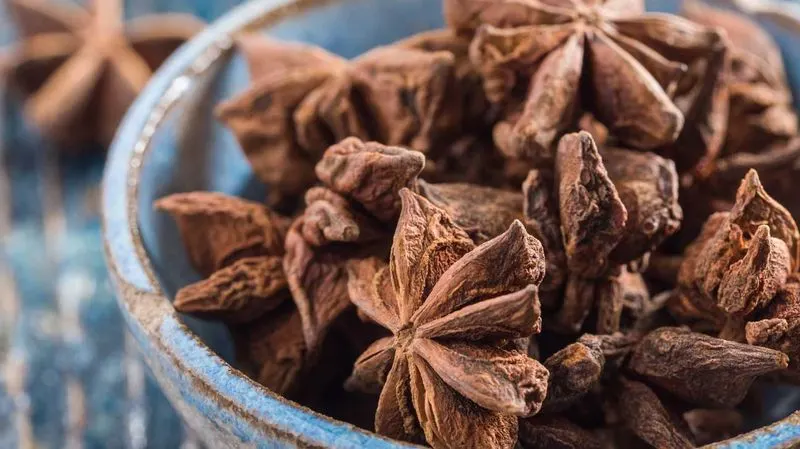
Star anise is an exotic spice known for its unique star shape and licorice-like flavor. It’s commonly used in mulled wine and spiced teas, providing an aromatic warmth.
Star anise can also enhance savory dishes, such as braised meats and soups. Its distinctive flavor pairs well with cinnamon and cloves, creating a harmonious spice blend.
The visual appeal of star anise adds a decorative touch to holiday dishes. Its ability to infuse dishes with complex flavors makes it a valuable addition to your spice rack.
Discover the potential of star anise this winter.

